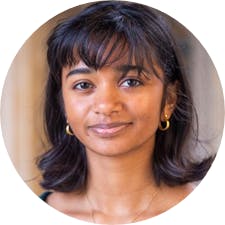For sophomore Lindsay Hu, it was returning to Hong Kong because of the pandemic. For Charlie Colasurdo, a Duke Kunshan University sophomore, it was living and working in Southeast Asia.
The members of the Duke Initiative for Urban Studies say their interest in urban studies and planning is personal, inspired by the places they have visited and grown up in.
“I think just being able to stay back home and not be in high school where everything's so chaotic is interesting because you get to see the city again,” Hu said of returning to Hong Kong. “I started getting interested in how people interact with the spaces that they live in and how the structure of society physically changes the way people live.”
Colasurdo, who is also Kunshan Report editor for The Chronicle, said his interest in cities stemmed from his time in Bangkok, Ho Chi Minh City, Singapore and, in particular, Kunshan.
“Cities in China are at a scale that is kind of incomprehensible to an American,” he said. “It's really these very chaotic, mega cities. And when I got to Duke, I was kind of interested in what kind of programs Duke had regarding not just urban planning, but the study of these cities in general.”
It’s this interest that led to the birth of the Duke Initiative for Urban Studies, a group of 10 current and former Duke students who love cities. They’re interested in increasing appreciation for urban studies on Duke’s campus, and they’re advocating for a formalized program in the area.
The group was formally organized in last fall by Colasurdo, first-year Zoe Macomber and Samantha Miezio, Trinity ‘20. Gradually, more students with similar interests joined the group.
“It started with the three of us. And then there were five of us. And then there were too many of us to meet in person. So we had to go virtual. Now, we’re at about 11 people that are officially interested,” Macomber said.
The group is currently working to create a group of 10 faculty members to act as a governance committee and advocate on behalf of the students before presenting a proposal to upper administration.
Macomber said she and the others created the Duke Initiative for Urban Studies with three distinct goals in mind: engagement, education and research.
Engagement refers to “getting [the Duke Initiative for Urban Studies] off the ground,” Macomber said. Engagement with students, faculty the community are particularly important to the group.
To that end, the initiative created a Facebook group for students and faculty interested in urban studies. As of Sunday, the group has 86 members, including faculty, staff, undergraduates and graduate students.
“The fact that people have joined is really impressive to me in showing that we're tapping into something that is a void on campus and is something that isn't offered anywhere else,” Macomber said.
The group is also working toward creating a structured education program in urban studies. They aim to start from a certificate program, as these programs allow for more flexibility than majors or minors, Colasurdo said.
“It's really flexible. That's why starting with your certificate makes more sense than jumping immediately to a major or minor, because I think it lets us be more experimental and see what works and what doesn't,” he said.
The group members have a variety of interests within urban studies, adding a layer of complexity to their goal of formalizing an educational program in the discipline.
Miezio graduated in fall 2020 with a self-designed Program II major in “Urban Studies: The Socio-Spatial Politics of the Built Environment” and often meets with students interested in studying urban studies and planning at Duke.
“Each student I've talked to has a different facet of the field that they're interested in, whether it's energy, electric vehicles, history, art history, environmental science, climate change. And the reality is that all of these things are connected to the way we as humans take up space and move about space in our built environment,” Miezio said.
As for research, the group hopes to identify relevant scholarship and programs on campus and connect students to those existing resources.
“The way that we thought about it so far is just that we want to take advantage of the existing research on campus. For example, the environmental justice lab works with the Durham community on some housing programs and stuff like that,” Macomber said.
Miezio noted that she was able to participate in various Duke programs related to urban studies, including DukeEngage Detroit, a Data+ program related to housing policy in Durham and an urban politics DukeImmerse program. Finding these opportunities, however, was sometimes difficult.
“I know for me, it was just so challenging to find opportunities related to the field. And I was often begging people for help—like, hey, what can I do? How can I do this? And a lot of times, I found the resources in really unconventional places,” she said. “I thought, ‘other people need to know about this. Other students need to know about that, too.’”
The desire to consolidate resources and information related to urban studies is what motivated Miezio to get involved with the Initiative for Urban Studies. This, coupled with the desire for a program with more structure than a self-designed Program II major, she said, could benefit students passionate about urban studies.
Macomber is considering a similar Program II major related to urban studies, but she noted that a formalized program would be preferable to the self-designed route.
“I think really what we want is to make it more accessible without everybody then having one discipline that you're trying to connect to different areas of urban studies,” she said.
Hu, the only engineer involved in the initiative, is studying civil engineering. She said that a formalized program in urban studies would allow for exploration as an engineer and act as validation for the field.
Because many resources related to urban studies already exist on campus, the group views the formalization of a program less as starting from nothing and more as a feat in “taking what’s available and making it into something new,” Colasurdo said.
“Duke is a very global community. It has the DKU campus, it has the Duke-NUS medical school in Singapore, and it has global sites and global students and alumni of the four corners of the world,” he said. The urban studies program would draw on each of these in some capacity, he said.
The members of the Initiative for Urban Studies are aware of similar programs at other universities, including Yale and Stanford. Yale’s program in particular draws on courses from the Yale School of Architecture, which is reflected in the major’s focus on urban design, Miezio said. She added that the resources available at Duke would result in a different focus within urban studies.
“Maybe focused much more on environmental science and public policy, thanks to Sanford and the Nicholas School. But then also the art history department here is really strong, so I could see a lot more like urban planning theory come out through that as well,” she said.
Colasurado agreed, stressing the various departments and schools that would be tapped by urban studies.
“Urban studies is kind of a textbook example of an interdisciplinary field, because it's everything. It's looking at anthropology, geography, history. I think it also builds off of Duke schools, like public policy, environmental science, engineering. They kind of amalgamate all this together,” he said. “Urban studies doesn't just mean the physical design of cities. It's what is the thinking behind creative cities and how humans get disease and how cities create economies and things like that.”
But to create a certificate, major or minor is no easy feat. Hu stressed that the future of an urban studies program is highly uncertain.
“Especially [because] there's no concrete deadlines chasing us. And it's just a group of 10-ish students trying to do something,” she said. “I think there's a lot of there's a lot of excitement, but also a lot of uncertainty.”
Get The Chronicle straight to your inbox
Signup for our weekly newsletter. Cancel at any time.

Preetha Ramachandran is a Trinity senior and diversity, equity and inclusion coordinator for The Chronicle's 118th volume. She was previously senior editor for Volume 117.

